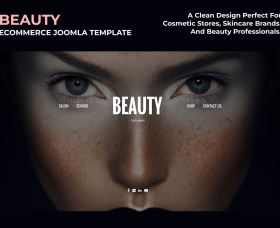Why to choose React JS for your Next project

The internet frontend development tech stack is highly wealthy and multifaceted with all the current frameworks and libraries. Choosing appropriate instruments could be a hard call for a company owner ready to bring his company online. However, it remains a key element for a product's future achievement.
It might seem like a good idea to choose a tried and true tool like Angular. But if you are constructing a particular sort of product, there are more choices to consider. React has been continuously gaining traction among developers as well as company owners, one of the fastest-growing and most common frontend libraries. It could quickly become the go - to web development instrument due to a number of its advantages.
Why are you choosing React? And, especially, when are you supposed to use it? Let's look at the benefits of React and its use cases more closely.
What is React JS ?
React, as described by its creators, is a "declarative, effective, and flexible JavaScript library to build user interfaces." Simply put, it enables you to develop a frontend for web applications that is quickly, easy and scalable.
ReactJS, a comparatively youthful framework, has stormed the world of web development. The framework was originally created by Facebook technicians as an inner instrument and quickly became open source, enabling it to develop further and be commonly embraced by individual developers.
The recent Stack Overflow Developer Survey finds React to be the most loved among frameworks, libraries, and other techniques: 66.9 percent of developers voted for it.

Simultaneously, according to this study, it is also the third most wanted technology. This obviously shows that the library is not only extremely rated by the developer community, but is also extremely demanded by company owners.
The Angular vs. React dilemma is totally unfounded despite its popularity. While Angular is a full-fledged MVC framework, React is a lightweight view library that typically requires additional instruments (Flux or Redux) to get a full architecture. The comparison between React and Angular is therefore somewhat comparable to comparing apples and oranges. In reality, within one project, both instruments can be used interchangeably (which is not suggested, however, mostly to prevent violating coding standards and best practices).
Reasons to choose React JS
Development Efficiency :
React enables you to write modular, clean code that breaks the project into distinct parts. This also enables the reuse of code, which can actually increase the productivity of developers.
Flexible & easy to maintain :
Unlike big monolithic projects, because of its modular design, React code is simple to keep and update. React products are highly versatile and can be readily scaled. In the long run, this can save time and money substantially.
High Performance of your App :
The key characteristics of the library, designed with efficiency in mind, such as virtual DOM and server-side rendering, enable you to produce really quick, large-scale applications.
SEO Friendliness :
React projects are better optimized for search engines due to backend rendering. In addition, the high pace and efficiency mentioned above lead to a better SEO, as well as providing a better general user experience.
Open, Rich toolset :
React is free and open to all as an open source technology. It also has a wealthy ecosystem, including instruments like Flux or Redux, as well as Node.js on the backend or a big amount of task-specific open source libraries listed on npm.
Strong Community :
Built originally on Facebook, the library continues to be supported and preserved by the business and more than 1,000 autonomous contributors around the world. React is a reliable and up-to-date technology thanks to the vibrant society and strong corporate support.
Easy transition to React Native :
React Native is a portable reaction-based design framework. Thus, switching to React Native and creating mobile apps with a native look and feel is simple for React JS developers. In addition, some sections of your React web app can be reused in a mobile app from React Native (mostly company logic) that increases the pace of growth.
Conclusion :
All in all, having your product constructed with a future-ready and flexible tech stack could be a enormous advantage in a contemporary fast-paced company setting. So get in contact with us now if you're thinking about using React for your next project. We will give a free consultation on technology selection based on our 10 + years in React JS development Company - Fortunesoft IT Innovations.
Thank you!
Will be posted after admin approval.








